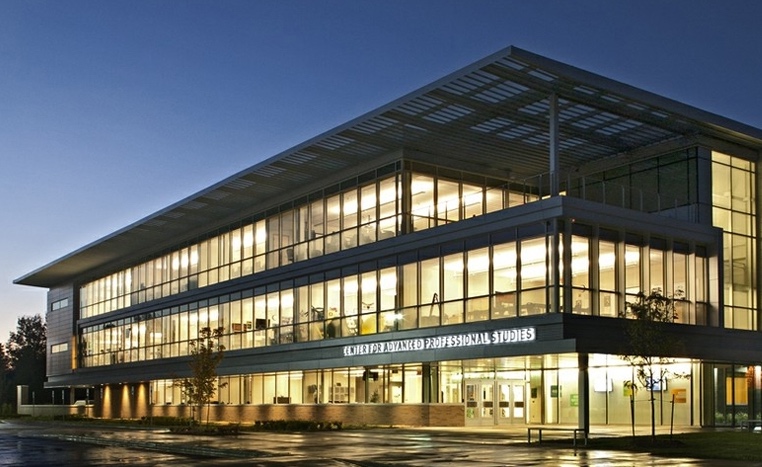A book dissecting the behaviors of “Generation Z” entering the workforce has featured a Kansas City-area education program for its innovative model.
Written by David and Jonah Stillman and published in March, Gen Z @ Work highlighted the Blue Valley Center for Advanced Professional Studies as a model that’s better preparing students for an evolving workforce. The book includes research from the first national study of Gen Z’s workplace attitudes and interviews with hundreds of CEOs, celebrities and thought leaders. Gen Z is defined as people born in the mid- to late-1990s to early 2000s.
CAPS executive director Corey Mohn was interviewed for the book and provided his perspective on the generation of students he’s helping to develop.
“Mainly, I shared that our goal at CAPS is to show students how what they are learning applies to their future,” Mohn said. “We do this through immersion into real-world scenarios instead of linear curriculum that may lack relevance.”
A Blue Valley CAPS graduate, Brady Simmons, was also interviewed for the book. Simmons shared that he didn’t always see a lot of value in high school and his mentality was to do enough to pass.
It wasn’t until joining Blue Valley Caps that Simmons started to see a connection between what he was learning and how it applied to the real world.
“(With CAPS) It was way more than getting a grade,” Simmons said. “If I failed a project, I was failing more than myself. I was impacting our project sponsor. I found myself truly loving school.”
Launched in 2009, the CAPS curriculum is focused on project-based learning and accelerating student knowledge using industry-standard tools and mentorship.
“CAPS fast forwards students into their future and fully immerses them in a professional culture, solving real world problems, using industry standard tools and are mentored by actual employers, all while receiving high school and college credit,” Mohn said. “CAPS is a powerful example of how business, community and public education can partner to produce personalized learning experiences that educate the workforce of tomorrow, especially in high-skill, high-demand jobs.”
In 2015, CAPS created a national consortium, banding schools together around the U.S., boosting its innovative education model. With programs in Kansas, Missouri, Nebraska, Iowa, Minnesota, Arkansas, Wisconsin, Utah and Arizona, the CAPS network currently spreads across nine states and 32 school districts.





































